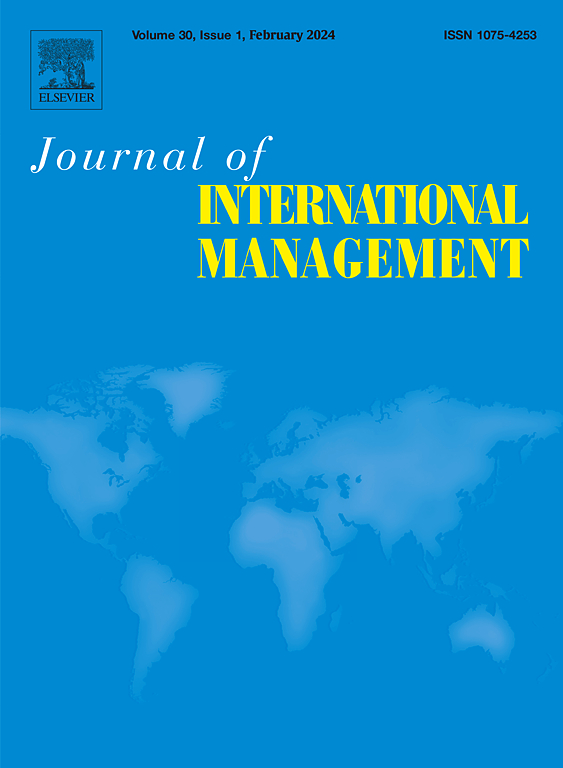Navigating international entry via strategic alliances: Comparison of family and non-family firms
IF 4.9
2区 管理学
Q1 MANAGEMENT
引用次数: 0
Abstract
International strategic alliances (ISAs) serve as an important vehicle for growth, international expansion, and access to technology and other resources. The choice of governance structure in ISAs—specifically, whether to form an international joint venture (IJV) or an international non-equity alliance (INEA)—is a pivotal decision for firms. However, despite the importance of this choice, the influence of firms' ownership heterogeneity on the choice remains underexplored. In order to address this gap, this study compares family-owned and non-family-owned firms to examine their differing preferences between IJVs and INEAs. Drawing on an integrated risk perspective and the mixed-gamble socioemotional wealth perspective, we argue that family firms exhibit a greater propensity to choose IJVs over INEAs than non-family firms. Moreover, we posit that this preference is amplified by two factors: (1) the industry-relatedness of the alliance partners and (2) the focal firm's prior experience in the partner's home country. Empirical analysis of 1216 cross-border dyadic alliances formed by publicly listed Indian firms between 2000 and 2022 provides robust support for our hypotheses. This study contributes to the literature on international strategic alliances and family firms' internationalization by shedding light on the nuanced governance preferences of family firms in cross-border collaborations.
通过战略联盟引导国际进入:家族企业与非家族企业的比较
国际战略联盟(isa)是实现增长、国际扩张以及获取技术和其他资源的重要工具。企业治理结构的选择——具体来说,是组建国际合资企业(IJV)还是国际非股权联盟(INEA)——是企业的关键决策。然而,尽管这一选择很重要,但企业所有权异质性对这一选择的影响仍未得到充分探讨。为了解决这一差距,本研究比较了家族企业和非家族企业,以检查他们在ijv和INEAs之间的不同偏好。基于综合风险视角和混合赌博社会情感财富视角,我们认为家族企业比非家族企业更倾向于选择ijv而非inea。此外,我们假设这种偏好被两个因素放大:(1)联盟伙伴的行业相关性和(2)焦点公司之前在合作伙伴本国的经验。对2000年至2022年间1216家印度上市公司跨境二元联盟的实证分析为我们的假设提供了有力的支持。本研究通过揭示家族企业在跨境合作中细微的治理偏好,对国际战略联盟和家族企业国际化的研究文献做出了贡献。
本文章由计算机程序翻译,如有差异,请以英文原文为准。
求助全文
约1分钟内获得全文
求助全文
来源期刊

Journal of International Management
MANAGEMENT-
自引率
9.80%
发文量
67
审稿时长
81 days
期刊介绍:
The Journal of International Management is devoted to advancing an understanding of issues in the management of global enterprises, global management theory, and practice; and providing theoretical and managerial implications useful for the further development of research. It is designed to serve an audience of academic researchers and educators, as well as business professionals, by publishing both theoretical and empirical research relating to international management and strategy issues. JIM publishes theoretical and empirical research addressing international business strategy, comparative and cross-cultural management, risk management, organizational behavior, and human resource management, among others.
 求助内容:
求助内容: 应助结果提醒方式:
应助结果提醒方式:


